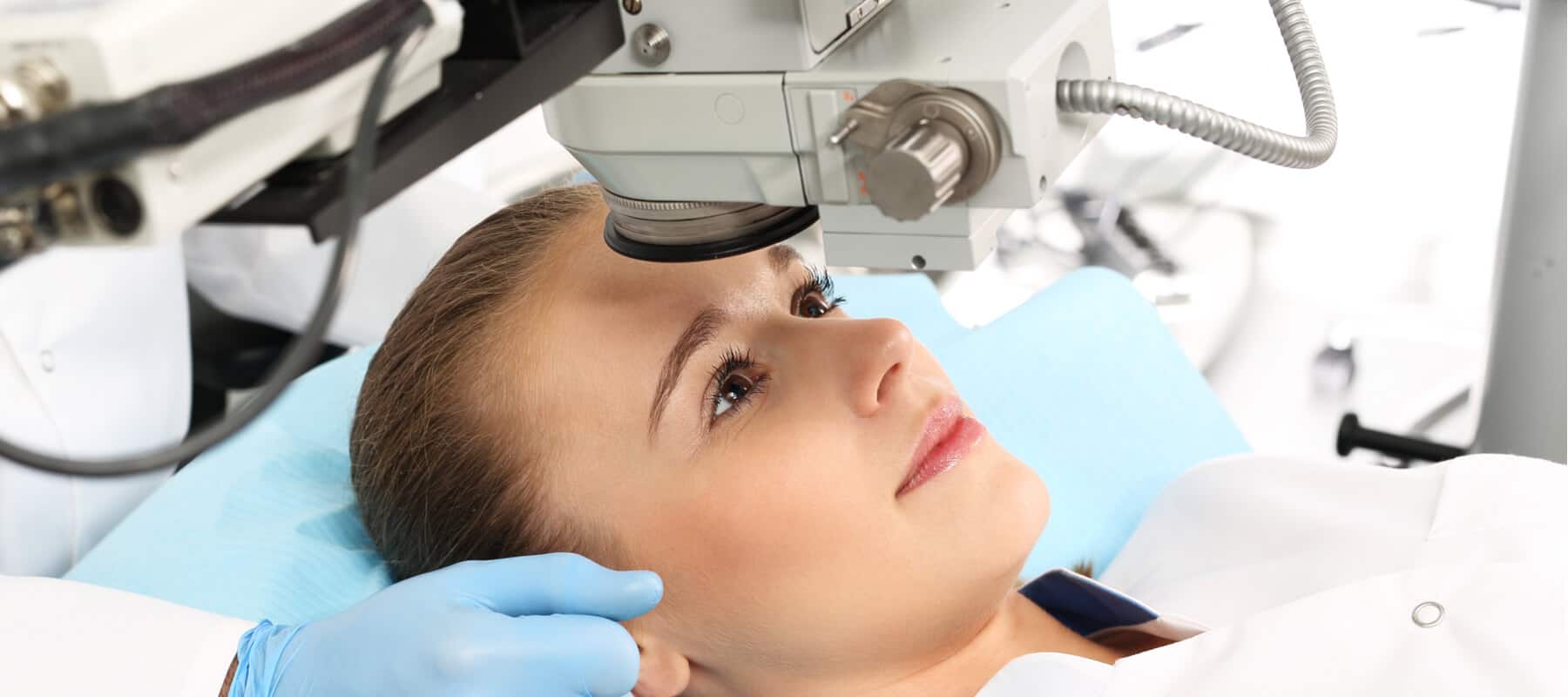
If you no longer want to wear contact lenses or glasses then you might wonder if LASIK surgery is the right choice for you. There are different LASIK surgery options to help improve your vision.
Contents
What Is LASIK Surgery?
There are different LASIK surgery options, but laser eye surgery works to correct blurry vision by reshaping the cornea. Before the procedure, the eye surgeon looks at the detailed measurements of the eye. He or she then uses a special type of cutting laser that changes the curvature of your cornea. Each pulse of the laser beam removes a tiny amount of the tissue in order for the surgeon to make the curve of your cornea steeper or flatter. The surgeon makes a flap in your cornea. The flap is then raised up before he or she reshapes the cornea. There are variations where there is no flap or an even thinner flap is raised. Each technique has its own benefits and drawbacks. Individual eye surgeons may also specialize in different types of laser eye surgeries. The differences are minor and none is better than the others. It will depend on your preferences and individual circumstances.
Are the Eyes Healthy Enough for LASIK?
LASIK surgery is appropriate for those with a moderate degree of refractive error and no other vision problems. In order to make sure your eyes are healthy enough for LASIK, an eye surgeon will ask you detailed questions about your eyes and evaluate to make sure you don’t have a condition that could complicate the surgery. These conditions include cataracts, glaucoma, large pupils, keratitis, eye injuries, dry eyes, or eye disease that means progressive deterioration of your vision.
LASIK may not be right for you if you have a high refractive error since the benefits may not justify the risks. If you see well enough that you only need glasses or contacts part-time then the improvement you will get from the procedure may also not be worth the risk.
Are You Healthy?
Your eye surgeon will also get information about your general health. Certain medical conditions not related to your eyes can increase the risk of complications from LASIK. These include diabetes, diseases that affect your immune system, or chronic pain conditions, such as fibromyalgia.
Is Your Vision Stable?
Your vision will likely continue to change throughout your teenage years or longer and require changes in your contact lenses or prescription. People should be over the age of 18 and even older before they consider LASIK surgery. Certain medications and conditions, such as steroid or drug use or pregnancy, can also change vision temporarily. It’s best to wait to have your vision stabilize before you consider the procedure.
Understanding the Possible Risks
Complications are rare but there can be side effects, such as temporary visual disturbances and dry eyes. These do typically resolve within a few weeks but some people have these issues long term. Some of the potential risks include dry eyes, double vision, halos, and glare. There is also the possibility for overcorrection and undercorrection.
